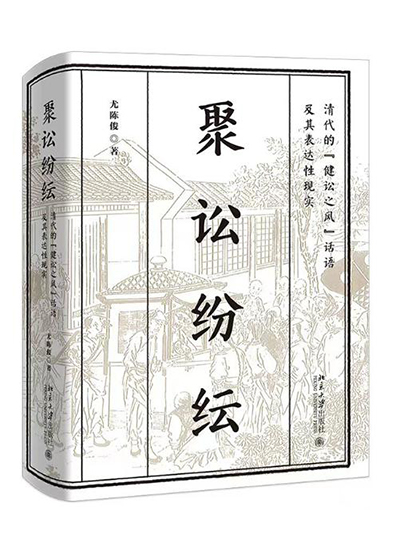A ‘litigious society’ in Qing Dynasty

The Discourse of the Climate of Vigorous Litigation in the Qing Dynasty and its Expressive Reality
China has historically been known for its preference for valuing peace over litigation. However, historical research over the past three decades has revealed another new perspective on social litigation in China. In the eyes of legal history and social history scholars, litigation forms in traditional Chinese society have clearly reversed from rejecting to favoring litigation.
The Discourse of the Climate of Vigorous Litigation in the Qing Dynasty and its Expressive Reality, by You Chenjun, a professor from the Law School at Renmin University of China, elaborates on the phenomenon and discourse background of litigation centering on the Qing Dynasty (1644–1911).
In this work, You Chenjun reviews current research at home and abroad on litigation in traditional Chinese society. Through empirical research on the quantity, contract objects, and litigation expense in Qing, the author uncovers the multifaceted nature of the litigation process, showcasing the complexity arising from differences in historical stages, regions, and social strata.
In addition, You Chenjun proceeds from legal and social history to explain how the descriptive discourse system was formed, incorporating a wealth of factors such as orthodoxy, economic considerations, financial systems, and the tenure of officials. He employs official and civil cases on the construction of the concept of “lawyers” to demonstrate the complex conceptual formation, as well as the correlation mechanism between ideology and social control.
Japanese scholar Susumu Fuma defines China after the Eastern Han Dynasty (25–220) as a “litigious society” based on absolute criteria. He argues that the significant number of litigation cases at that time, as depicted in historical accounts and objective data, justifies this classification. In contrast, You’s book adopts a relative standard, suggesting the expression of vigorous litigation can be regarded as a manifestation of the growing tension between the official judicial system and the demand for civil litigation at that time. In other words, society appeared overly litigious, but only in relation to the insufficient supply of judicial resources.
From a broader view, a comparison of different spatial contexts may offer an alternative approach. Whether a particular society is litigious can also be determined in comparison to other societies. Qing China in the 17th–19th centuries may have been more litigious than contemporary Japanese society, but far less litigious than British society at the time. Litigation, or litigious society, as a qualitative concept, can be more clearly identified in the sense of internal comparison (with institutional provision) and external comparison (with other societies).
Wang Zhiqiang is a professor from the Law School at Fudan University.
Edited by YANG LANLAN
